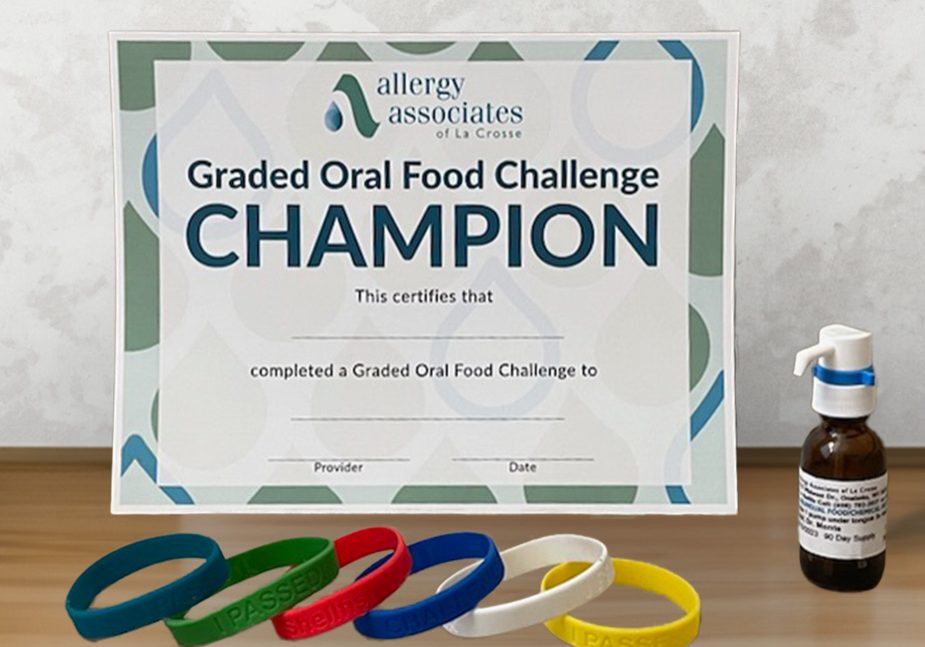
Can Kids Outgrow Food Allergies?
Many of our patients at Allergy Associates of La Crosse (AAOL) are children, and a large number of them struggle with food allergies. How do you know when it’s time to treat a food allergy, especially when it’s an allergy they may outgrow? Let’s walk through it.
Some Food Allergies Can Be Outgrown
It’s true! Some children may outgrow their food allergies, meaning that they react as a child, but a few years later, they no longer react.
Food allergy reactions can vary from minor to severe, and one reaction does not predict the next. While a child may react with a rash and itchy throat once, they could react with a systemic reaction the next time. The unpredictability of food allergies is what makes them so nerve-wracking and dangerous.
There are a few allergies that are known for being common in children, but are outgrown by the time they hit double digits. Medical News Today shows:
- 80% of children outgrow wheat allergy
- 79% of children outgrow cow milk allergy
- 68% of children outgrow egg allergy
How to Know If They’ve Been Outgrown
If your child reacts to a food once, it’s likely you’ve completely eliminated that food from your child's diet. How do you know if the child has outgrown the allergen, and if can it be introduced back into their diet?
This article from Ohio State University explains how they tell if a food allergy has been outgrown, and providers at AAOL follow the same method. First, we start with allergy testing, just like you did to have your child diagnosed. We’ll be able to see if there is a positive change in their allergen tolerance, and if so, we may recommend a Graded Oral Food Challenge.
During this challenge, which is considered a gold standard in food allergy, you and your child stay in our custom-designed suite and are given the specified food in timed intervals at pre-calculated amounts. The doses increase while your child is constantly monitored by our providers for safety and to watch for reactions.
If all goes well, your child may be able to walk out with one more food they’re able to add into their diet. If not so successful, or testing shows they’re not ready for a GOFC, your provider may recommend further treatment of that allergy with allergy drops.
Why Treat Allergies Young
Rarely are allergies singular; most people who have one allergy have multiple.
With allergy drops following The La Crosse Method™ Protocol, all identified allergens are treated at their specific level of sensitivity. By treating all offending allergens, the Total Allergen Load is reduced and the overall allergen tolerance increases.
Using this method, your provider may recommend your child treat all food allergens, possibly those that may be outgrown. Since they’re already doing treatment, there’s no reason to avoid these allergens – it will only benefit your child and “speed up the outgrowing.”
Intervening in allergy early is important to stop the allergic march; the progression of allergies over time. A food allergy now means that there is an allergic response in the body, and could lead to asthma, environmental allergies, headaches, and more over time.
When your child starts showing signs of allergy, that’s the best time to start treatment. Contact our office to set up your child's consultation.
